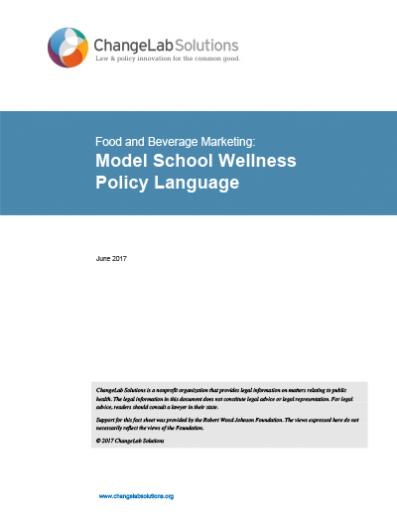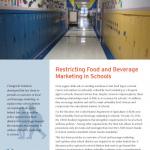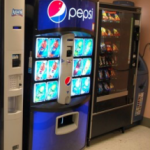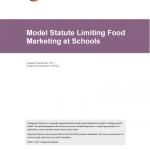Food & Beverage Marketing in School Wellness Policies
Model policy language for limiting unhealthy marketing to students
All school districts participating in the National School Lunch or Breakfast Program are required to adopt a local school wellness policy that limits unhealthy food and beverage marketing on campus.
At a minimum, schools must prohibit on-campus marketing of foods and beverages that fail to meet the USDA Smart Snacks in School nutrition standards. This requirement reflects the research indicating that marketing unhealthy foods at schools conflicts with schools’ efforts to promote healthy environments and educate students on proper nutrition. Limiting food and beverage marketing in schools is critical because children are particularly susceptible to advertising.
ChangeLab Solutions developed this model policy language to help school districts comply with the minimum federal requirement. The policy provisions also provide options to address marketing comprehensively. Districts can choose to limit brand marketing, apply marketing restrictions to activities before and after school, prohibit the sale of “look-alike” Smart Snacks, address off-campus fundraisers, or restrict all food and beverage marketing on campus.
Note: This product replaces our District Policy Restricting Food and Beverage Advertising on School Grounds, which was developed prior to the 2016 USDA final rule on local school wellness policies. This model contains a slightly modified definition for “marketing.” The final rule referenced the definition of marketing from the previous product.*
*Local School Wellness Policy Implementation Under the Healthy, Hunger-Free Kids Act of 2010, 81 Fed. Reg. 146, 50151 (July 29, 2016) (to be codified at 7 C.F.R. pt. 210, 220).





